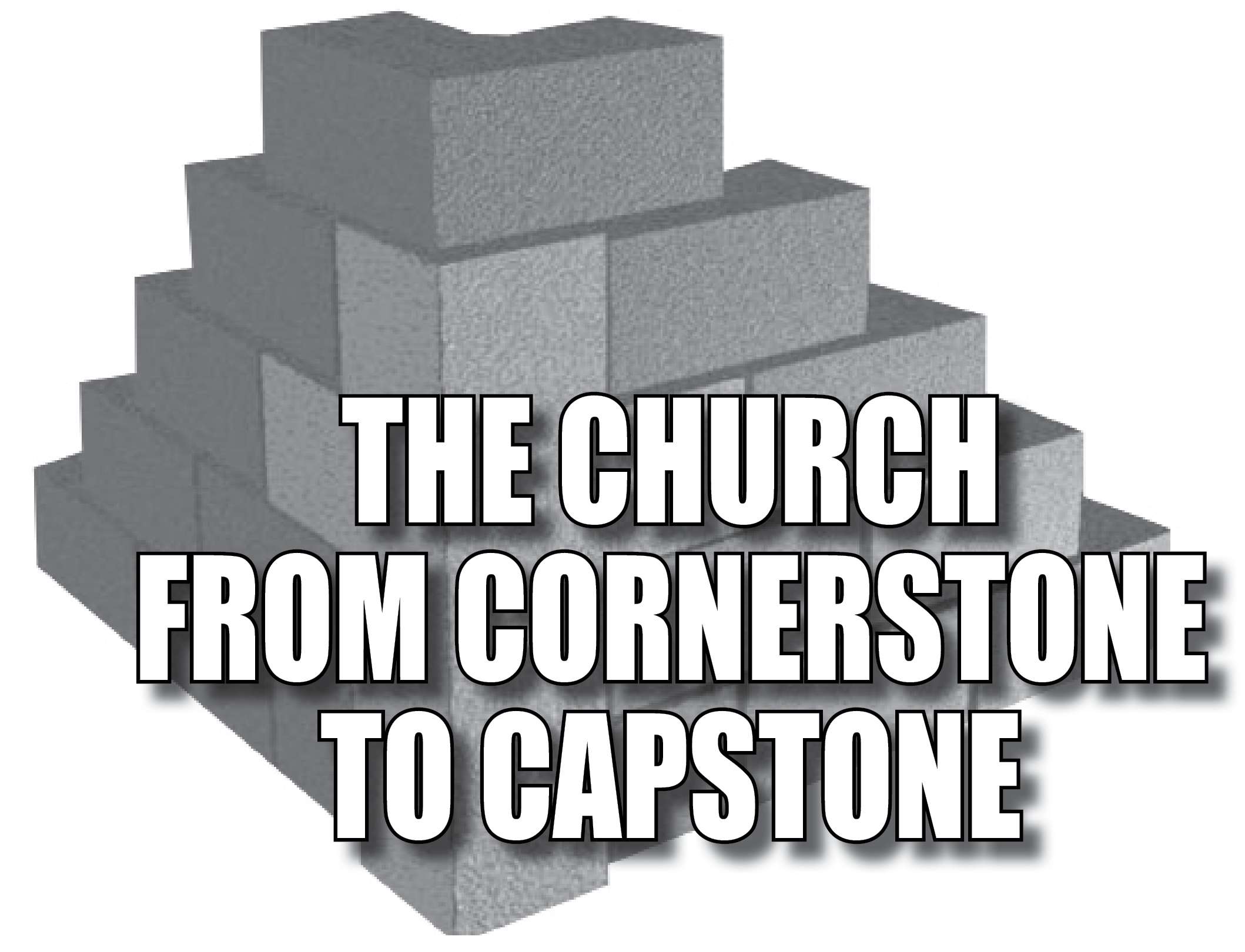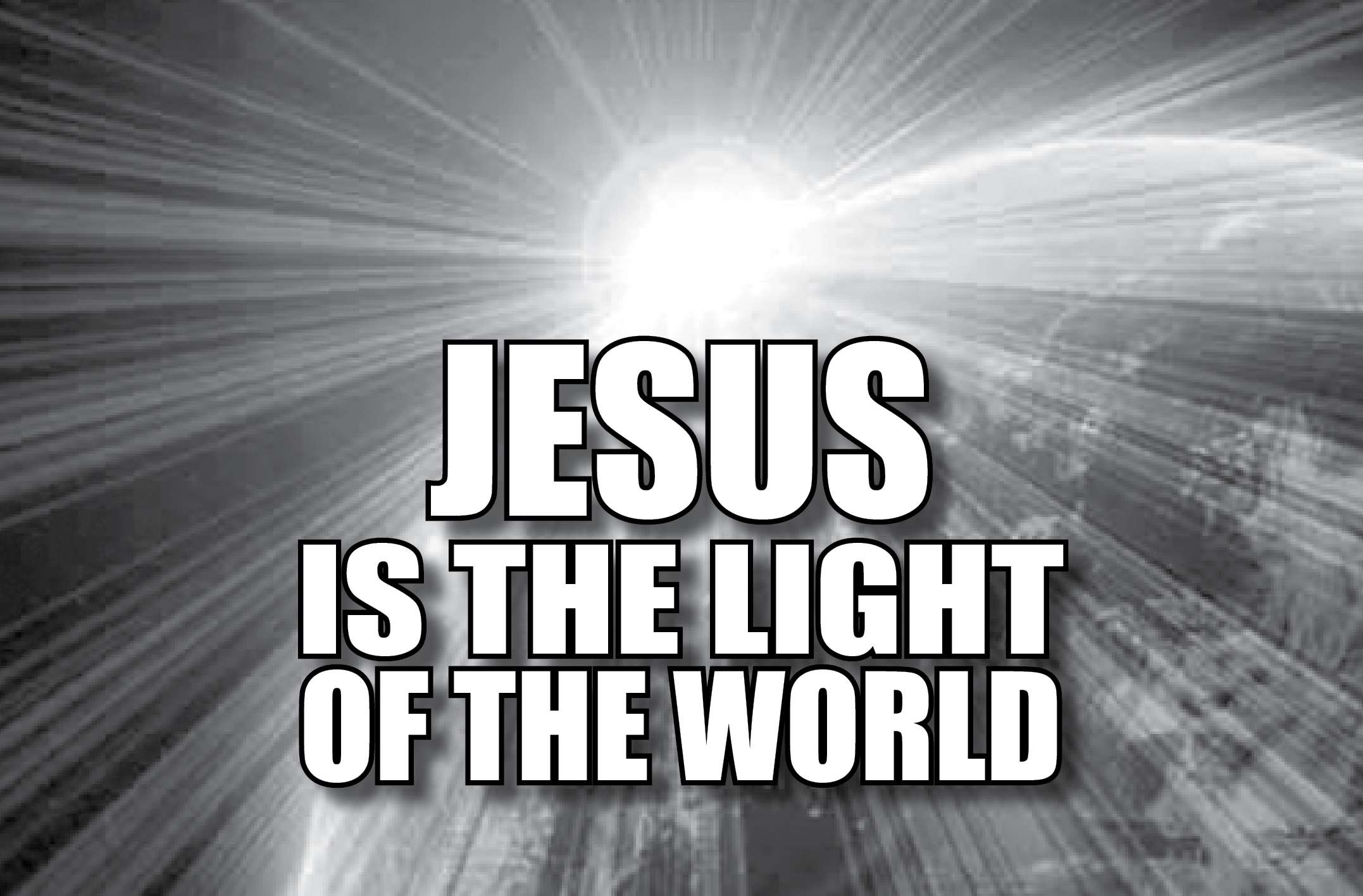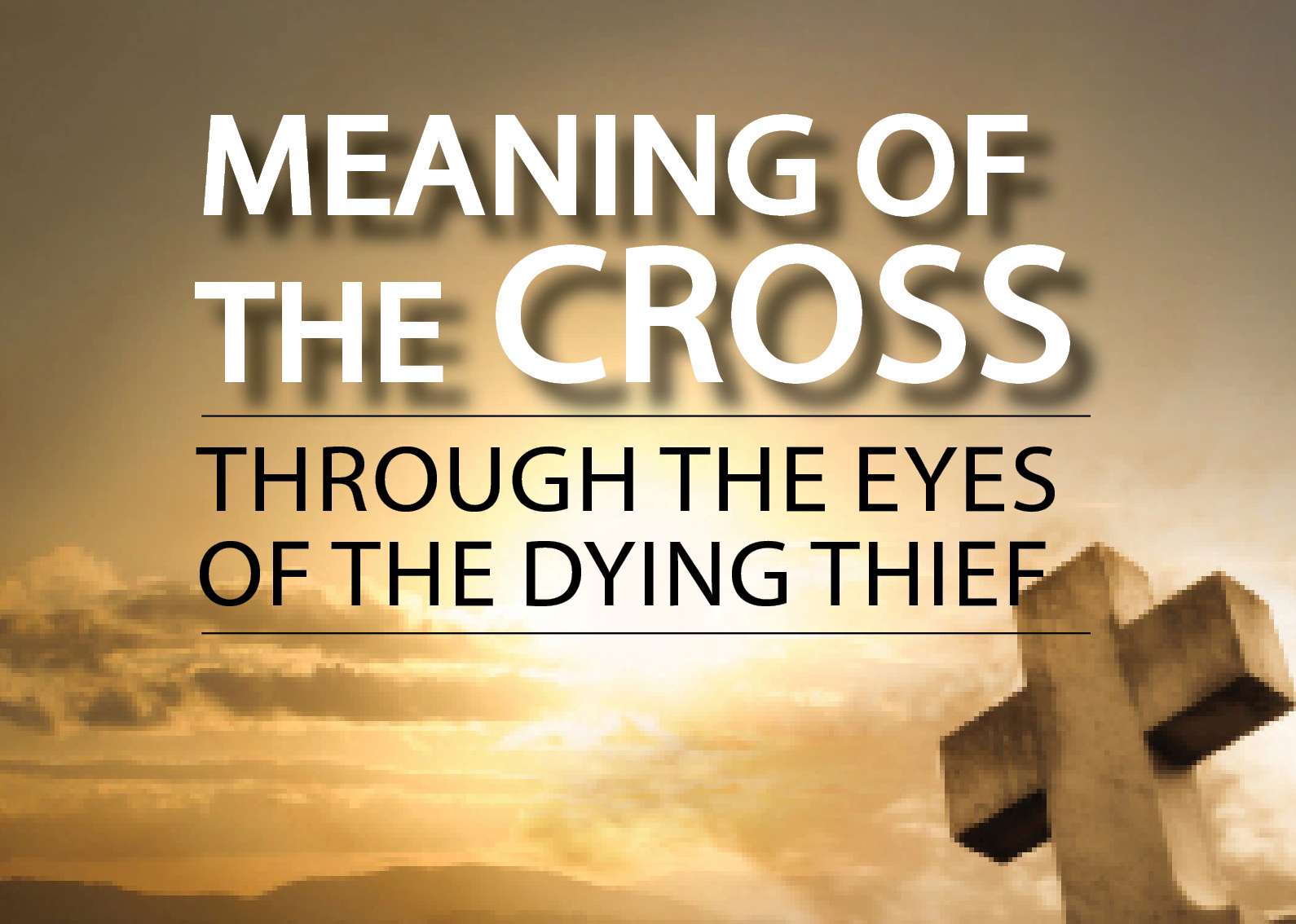

THE MODEL PRAYER PART II
Dr. Kris A. Jackson
We are “jogging” through the Lord’s Prayer to stay spiritually fit. Dr. Cho described his daily devotional time as a jog around an athletic track – “Every morning I get on a running track in the Spirit, and I circle that track. I know when I’m one-fifth of the way through, two-fifths, four-fifths and then, finally, I know when I’m done. Then, if I have time, I run it again…” The first four laps on this track of prayer were covered in the last issue of Revive Magazine. Lace on your tennis shoes and let us continue the final three laps of the track.
Along with daily food comes daily forgiveness – “And forgive us our debts…” (vs 12) “Give us”, petition, now becomes “forgive us”, penitence. You didn’t think we were going to get all the way through this prayer without the Father dealing with sin, did you?
The fifth lap addresses our need for DAILY CORRECTION. To pray to “Our Father” is to approach pure love but also pure holiness. Prayer means coming to the light, which by default reveals some ugly truths about us. It is hard for people who always think they are right to own up to their mistakes or admit any need for correction. But look who taught this prayer – Jesus never once sinned yet He led the way in praying, “forgive us…” No man is so good that he doesn’t need forgiveness, but nor is any so bad that he can’t find forgiveness.
To “forgive” is to “fore-give”, to remit the debt while the petitioner has no means of payment. Only a creditor can forgive a debt. Morrison comments, “When we sin there is something in our act for which we become liable to God. Formerly He had a claim upon us; now He has a claim against us”.This time of soul-searching is not generalization but rather the naming of specific sins and debts. Conversion may be blanket forgiveness but true repentance spells out specific sins, “our debts”, confessing them one by one as exposed by the Holy Spirit.
If the prayer asked, “forgive me”, alone, I might despair that I was the only sinner. But it asks, “forgive us”, corporately, so we can quit kicking ourselves as being the worst person on earth because what you struggle with most everyone else struggles with as well.
That they are defined as “our” debts instructs that we are inter-connected in our failures as much as in our successes. “Our debts” means that your loss becomes my loss. We are a family, what hurts you, hurts me. If I sin I do not sin to myself; the whole family suffers just as all Israel paid a price for Achan’s sin. When I adopt “our debts” as my debt, I number myself with the transgressors and take your burden on as my own. Though the debt may not particularly be “mine”, it becomes “ours”, because, the next time it might be me who is in need. If YOU have a problem WE have a problem because what affects you affects everyone else in a unified body.
The self-made man feels no debt to anyone but himself. After all, to what deity would he offer thanksgiving at mealtime since he butchered the hog and did all the work that made dinner possible? But the rest of us are in debt to our eyeballs. I may have my charge cards paid in full but still I have debts . . . to the mother who nursed me, to pastors who prayed for me, to soldiers who died for my freedom, to Reformers who brought us the Bible and to ten-thousand other angels unaware who helped us along the road, not to mention our ultimate debt to the One who took our place on the cross. Lord, forgive us our “debts”, plural, a stack of bills laid one on top of another, reaching half way to the moon!
God can wipe out in a second the debts which took a lifetime to accrue. However, it is presumptuous to amass debts under the false premise that all we have to do is pray, “forgive us our debts” and He will cancel them. The “forgive us” part of the prayer is a remedy for the past, not a permit to gamble with the future.
Forgiveness is contingent on a willingness to forgive – “…as we forgive our debtors”. With the same measure we give it will be measured to us again. I can’t expect God to give to me by the wheelbarrow when I am only willing to give to others by the teaspoon – “…If anyone has a complaint against another; even as Christ forgave you. So you also must do” (Colossians 3:13).Morrison opined, “He who offers up this petition with an un-forgiving heart virtually prays against his own forgiveness”.
Forgiveness must be proactive. There is no mention of an apology in this verse or any negotiating of a multi-year payment plan. Before the offending party even thinks to say they’re sorry, grace has already made up its mind to forgive and has taken steps to untie every string. NIV says we “have forgiven our debtors”, past tense. There is a therapeutic quality in this verse; when I forgive, a prisoner is released, and I find the real prisoner was me.
The Amplified Bible says we have “forgiven (left, remitted, and let go of the debts, and have given up resentment against) our debtors”. The idea that I’ll forgive but never forget is proof that the forgiveness is not complete. If you can’t forget it, at least you can quit remembering it; that is, quit nursing, rehearsing and cursing the past. Instead “let it go”.
Jesus is not suggesting that no one has to pay once the debt is cleared, because Law requires a settling of all scores, but grace sees full payment made in the cross. Whatever we have lost God is able to make up to us. The injuries we say goodbye to will be replaced with blessings that far outweigh any suffered indignity. Everyone gets injured on this planet. Your hurt is no worse than the next guy’s. Plus, we must remember that we have been guilty of similar offenses and so we should be swift to let the grievance go because we will need mercy ourselves.
The sixth lap on the devotional track deals with DAILY PROTECTION – “And do not lead us into temptation…” (vs 13) We know that “God cannot be tempted with evil, nor does He Himself tempt anyone” (James 1:13), which makes this clause somewhat puzzling. Weymouth captures the intent, “Bring us not into temptation…” The Greek verb means to be brought or carried into. We naturally think the one leading here is “our Father” but the sentence does not demand such. There are plenty of ways we can be carried into temptation, none of which have anything to do with the Father. We are led there by our own ignorance, by being “drawn away of [our] own lusts” (James 1:14), by strategy of the evil one or by any number of circumstantial twists of fate.
Temptation goes two ways, God tests to sift out the chaff, Satan tempts to sift out the wheat. God’s testings are to perfect, Satan’s are to destroy. No believer is led by the Lord into something that could destroy him. Paul promised that our temptations are “common to man” (1 Corinthians 10:13) You aren’t going through anything that others haven’t faced. Second, God “will not allow you to be tempted beyond what you are able…” He knows our load limit. Third, He will “with the temptation…make a way of escape, that you may be able to bear it”. No matter what stunt the devil pulls God always provides an escape hatch if we will look for it.
“Entering” temptation is the subject of this request, “lead us not INTO temptation”. Coming near temptation has its own dangers, but once one is “into”,the trap has sprung and he is overcome by it. Most people pray after the fact, instead of before.
Our prayer is that we be led away from temptation, but in those times when we either face temptation or perhaps fall into it, God offers powerful deliverance – “But deliver us from the evil one…” The Greek verb employed means to “draw to oneself”. So to seek deliverance from evil not only means rescue out from the clutches of temptation but a pulling toward the Father’s heart. Israel was rescued “from” Egypt to be taken “to” Canaan. The negative must be replaced with a positive.
Prayer is spiritual warfare. Praying deliver “us” is an intercessory stance against the devil. If I were in the clutches of temptation I would pray “deliver me” but “deliver us” assumes that one who is victorious over temptation, sin and the wiles of the devil is combatting on the behalf of another who is not as strong.
The deliverance is “from”, apo, implying a separation, away, distanced, apart, etc. Deliverance “from” a romantic affair doesn’t leave the person sitting on his or her lover’s porch. Having gotten out, the person now needs to get away.
“Evil” here is ponerou from ponos, meaning “pain” or pain-ridden, which would include all the evils that cause human pain. In verse 23 poneros pictures a “bad” eye, something flawed, diseased or deteriorating. Our word “penury” comes from ponos, so poverty is included as a trap from which men need deliverance.
The old English versions spoke in a limited sense, “deliver us from evil”, while the newer versions define the source of poneros as being “the evil one”. Our warfare is against a real, tangible entity and since prayer engages a real enemy, real assistance backs those prayers. Angels are sent to our rescue. Divine power is released through the Person of the Holy Spirit. Why else would Satan so resist our every effort to pray? Because he knows that when the door is shut the believer is fetching ammunition that will be used against him.
The final lap on this prayer track intimates our need for DAILY REFLECTION. To reflect is to rehearse what is known. Petition now turns to praise – “For Yours is the kingdom and the power and the glory forever. Amen”.The conjunction hoti, “for”, instructs that, since the kingdom, power and glory are all subject to the Father, He is quite able to answer all the preceding petitions.
“Yours is” or “thine is” (KJV) indicates that all belongs to Him. This brings great peace for if all is His then we need not concern ourselves with preserving those things. If it is “mine” I have to oil it, feed it, mow it, educate it or clothe it, but if it is “Thine” then I am absolved of any liability. If the house we live in is “Thine” and a cyclone carries it away, I have lost nothing for it wasn’t mine to begin with. You may have walked past a casket and said goodbye to the dearest person you have ever known but you were able to let go and trust him or her to the Father’s keeping because they were “Yours, O Lord”. Stewardship is ours but ownership is His. Turning everything over to Him removes the pressure from us and casts all care on Him.
There is a string of “ands” in this closing doxology, the kingdom “and” the power “and” the glory, etc. Praise is an ongoing offering. There is no stopping the additions and multiplications of God’s accolades, and, and, and. The Lord’s Prayer only takes a few seconds to recite but it becomes limitless once praise fills the room.
Three areas of sovereignty are mentioned, the kingdom, the power and the glory. In this “trinity” concept each point leads to a higher level of spirituality.The kingdom signifies all that is under His dominion, that which eagerly and humbly bows to Him. The word is basiliea from which we derive “basilica”, “bastion” or the root, “base”. The church is God’s operational base and headquarters on earth.
His is the “power”, the dynamic needed to extend the kingdom. One of the main purposes in entering the closet is to receive power to serve and to battle against the enemy. The model then is a pleading for the fullness of the Spirit because dunamis, the dynamism for service is received after the Holy Spirit comes upon us (Acts 1:8).
The “glory” is the weighty presence of God manifested in true revival. Each word is a compounding of the former. The kingdom speaks of the scope of His reign; power, the strength of of the scope of His reign; power, the strength of His reign, and glory, the splendor of His reign. The prayer begins in humble need and ends in Holy of Holies glory.
The doxology lauds God’s work as being “forever”. This short prayer exercise now morphs into the eternal. You may think your prayer is nothing more than a few words thrown out into the great beyond, but they are much more, actually becoming eternal parts of God’s kingdom plan. A person may be long dead and gone but their prayers were not buried with them. Every prayer uttered is “forever” because God is “forever”.
The postscript “amen”, “so be it”, clinches the deal by commiting every request into the hands of a faithful God. The word “amen” verifies, certifies, solidifies, substantiates and seals the words prayed. Having prayed through we’re through praying! Christ is the eternal “Amen” (Revelation 3:14). His promises are “Yes” and “Amen” to the glory of God (2 Corinthians 1:20). So our “amen” is an agreeing with His, an avouching on earth what is being pled before the Throne by our great High Priest in heaven.
And once “amen” is boldly affirmed, the issue is settled, there is no reason to lengthen the stay in the prayer chamber. There comes a time for Joshua to rise from his face-down position on the ground to take charge in moving Israel’s armies forward. The last word in the New Testament is “amen” (Rev 22:21). Shall we append the Bible and add another chapter or two? Of course not! It is finished, signed, sealed and delivered. The “amen” validates that what has been spoken shall come to pass.
With the word “amen” the finish-line is in sight. So be it. God has everything under control. Now I can take off the tennis shoes and then lace up the wing-tips. It’s time to go to work!














